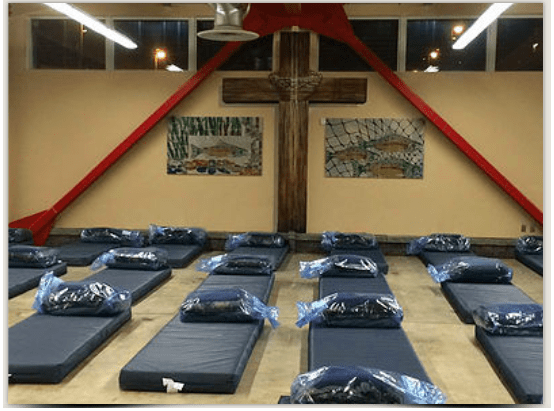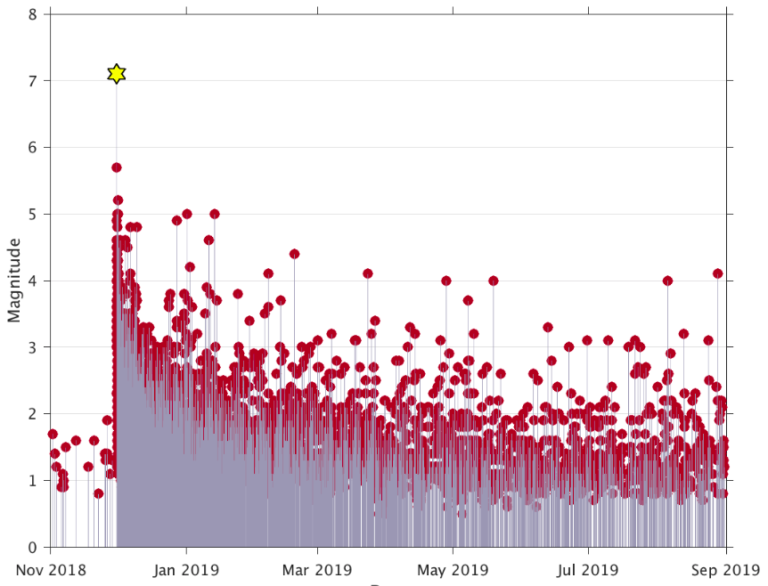By ART CHANCE
We now have dueling lawsuits and dueling op-eds in Pravda, excuse me, the Anchorage Daily News, about the State’s actions to implement the US Supreme Court’s ruling in Janus v. AFSCME. This pertains to compulsory union dues in the public sector.
The Alaska State Employees’ Association’s Jake Metcalfe is the former head of the Alaska Democrat Party. ASEA has been the cash cow of the AFL-CIO and the Saul Alinsky wing of the Democrat Party since their parent, the American Federation of State, County, and Municipal Employees (AFSCME), AFL-CIO, came to Alaska in 1988 looking to take over a local union and buy a member or two of the Alaska congressional delegation.
They were able to buy a governor in 1994, but it took them until 2008 and some help from the US Justice Department to buy a member of Congress — Mark Begich.
I have the standard ASEA screed about union busting memorized; God knows they said it about me enough times.
Commissioner of Administration Kelly Tshibaka is assuring the unions and the citizenry that the Administration wants to work with the unions to implement the Janus decision.
That is so sweet! I’ve said silly stuff like that too, but I didn’t mean it; I hope she doesn’t either.
Compulsory union dues are the life blood of unions and union money and power are the life blood of the Democrat Party. The 23 states that allow compulsory union membership are deeply blue and no matter what they do, the Democrat hold on those states is relatively secure. The number is down from a peak of 27 union states. De-industrialization in the Midwest has dramatically reduced the number of industrial and trades union members there.
Public employees are much less sympathetic characters than are working class heroes so there has been some erosion of union power in the last decade or so, but they are far from dead.
Here in Alaska changing demographics and conservative/Republican disunity have given unions power they haven’t had since before oil. They aren’t going gently into that good night.
Today the two most powerful interests in Alaska politics are unionized public employees and government funded healthcare. Both care only for keeping their hooves firmly in the operating budget trough.
Environmental and anti-development interests are natural allies because they too are foremost leftists and the particular interest is merely a vehicle. Those of us of Boomer age remember how seamlessly the US left moved from opposition to the draft and the Vietnam War to environmental issues and opposition to development in the early Seventies.
The oil industry is hardly a player unless the issue directly affects the industry. Like the oil industry most of the “private” sector is corporate and based Outside, so they don’t care — unless the issue directly affects them.
Basically, the Alaska res publica is composed of unorganized individual citizens and highly organized powerful interests. It is remarkable that Alaska isn’t a Socialist workers’ paradise like the other Left Coast states, but that day isn’t far away if the current course continues.
I’ve been pretty open about my skepticism towards the Dunleavy Administration’s approach to this issue. Some close to and in the Administration seemed to think that implementing Janus would be their salvation in opposing union power. My reaction was, “yeah, right.”
I became the State’s director of Labor Relations in 2003 almost 20 years after union shops in the public sector were made illegal by the US Supreme Court; half of our labor agreements still had union shops. I told the unions they had to go, and I was on the front page labeled a “union buster.” The unions will give up compulsory union dues in the public sector when they are wrested from their cold, dead fingers.
Some of my conservative/ Republican friends have questioned me, saying, “How do Alaska law and labor agreements trump the US Constitution and the Supreme Court?” To which I reply, “nothing is illegal if nobody enforces the law.”
For almost 20 years nobody had the courage to take on the more powerful State unions regarding their blatantly illegal union shops and union hiring hall systems, and I’ll admit I wouldn’t take them on over the hiring halls because we didn’t have time to get it to the Supreme Court before the end of the term.
If Gov. Dunleavy was going to have this fight, he should have started it as soon as his hand came off The Bible. Now, he is almost a year into his term.
The issue is raised in State courts, where a Republican administration generally and this one particularly can expect to be roughly handled.
The State can expect to be enjoined from making any change in its practices regarding dues collections; that keeps the union cash cow working. If the Superior Court judge is a Democrat s/he’ll let the case drag out as long as possible and ultimately rule for the union on grounds that the current agreements and withdrawal processes don’t violate State law – which they don’t, and that is the real issue. If the judge is a Republican or apolitical, why should s/he put a laser dot on his/her forehead by ruling against the unions/Democrats when s/he can just take a pass, rule on current State law, and buck the issue to the Supreme Court.
There goes at least another year, so we’re now in year three of the Dunleavy Administration. It is easy to kill a year even getting a case before the Alaska Supreme Court and that means it is argued and set for decision in a gubernatorial election year.
The Dunleavy Administration can expect no love from the Supreme Court and the justices can read the paper. Anyone with a brain knows that the Left will pull out all the stops to elect a Democrat or a quisling and if they are successful the whole unpleasantness about union dues will go away as soon as the new Governor takes his/her hand off The Bible. Why should the court make a decision before the election when if the unions win no decision will be necessary.
I don’t believe that the Dunleavy Administration has any real hope of getting this issue decided in State courts before the next gubernatorial election and I further believe that if they don’t, it is extraordinarily unlikely that they or any other Republican candidate will win the next gubernatorial election; the unions/left are too strong and organized and the conservatives/Republicans too divided and disorganized to prevail.
The real issue is why is the question in State courts? Compulsory union dues and dues collections by the employer in accordance with union rules are both perfectly legal under the Alaska Public Employment Relations Act.
There is no question that the Dunleavy Administration’s attempts to change State policy and procedures regarding dues payments and collections violate both State law and the majority of the labor agreements currently in effect.
The problem is that the State law and the labor agreements violate the federal Constitution. So, why is the State in the Alaska Superior Court rather than the federal Alaska District Court? Maybe somebody who knows more about standing and jurisdictions of federal courts than I do can give a satisfactory answer, but it seems to me that a federal question should be in the federal courts.
As I said in my column on Aug. 28, the federal route isn’t an easy one and the Ninth Circuit has shown itself willing to stand the Constitution on its head to protect leftist interests, but if Alaska can get the matter to the US Supreme Court, it will prevail.
Somebody persuade me that the State isn’t in the wrong courthouse.
Art Chance is a retired Director of Labor Relations for the State of Alaska, formerly of Juneau and now living in Anchorage. He is the author of the book, “Red on Blue, Establishing a Republican Governance,” available at Amazon.









